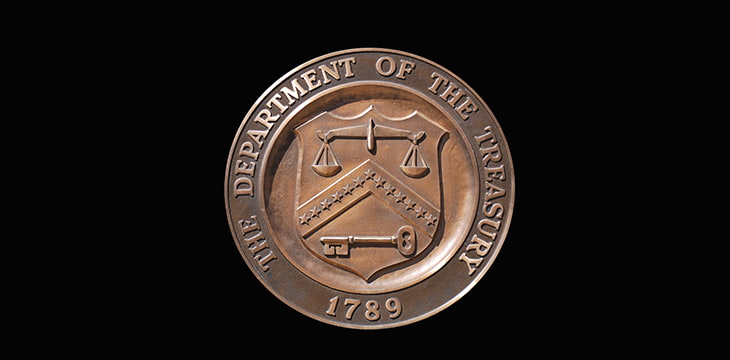|
Getting your Trinity Audio player ready...
|
The U.S. has targeted Russia’s block reward mining industry in its latest tranche of sanctions. BitRiver, described as Russia’s first carbon-neutral block reward miner, has been added to the Treasury’s Office of Foreign Assets Control (OFAC) list of specially designated individuals and entities.
In a statement, the Treasury Department noted that the move is aimed at companies operating in Russia’s technology sector that could help it monetize its natural resources.
“Treasury is also taking action against companies in Russia’s virtual currency mining industry. By operating vast server farms that sell virtual currency mining capacity internationally, these companies help Russia monetize its natural resources,” the statement reads.
It added that companies like BitRiver and ten of its subsidiaries that were added to the list were vulnerable to sanctions as they relied on imported computer equipment and fiat payments. Treasury asserted that it can and will continue to target those who attempt to evade or aid the evasion of U.S. sanctions against Russia.
Not the first sanction on Russia
While this is the first sanction targeted at Russia’s block reward mining industry, it is not its first digital currency sanction. The Treasury Department previously published new regulations warning exchanges not to facilitate transactions for individuals and entities added to its sanctions list.
Moreover, the guidance directs that all Russia-related property that comes within the U.S. or within the possession of U.S. citizens are to be reported to the OFAC. The OFAC also has several digital currency wallet addresses belonging to sanctioned individuals on its list, as well as sanctions in place for Hydra—a Russia-based darknet marketplace that uses digital assets.
Similarly, Russia’s digital currency industry has come under pressure from other countries as well. Japan recently revealed that it would review its digital assets exchange laws to block any possible ways for Russia to evade sanctions.
The European Union (EU) also took aim at digital assets trading and custody in Russia in its recent sanctions. The bloc has banned the provision of high-value digital currency services to Russia. This includes a requirement for exchanges to collect and report high-value digital assets transactions and a ban on unhosted digital currency wallets.
Furthermore, Binance, in keeping with the EU’s sanctions on Russia since its declaration of war on Ukraine, has announced that it is curbing its service in the country. Reuters reports that Binance is banning Russian nationals and companies that hold assets worth more than $10,900 from making deposits or trades.
Watch: CoinGeek New York panel, Future of Digital Asset Trading & Financial Services

 02-19-2026
02-19-2026 




